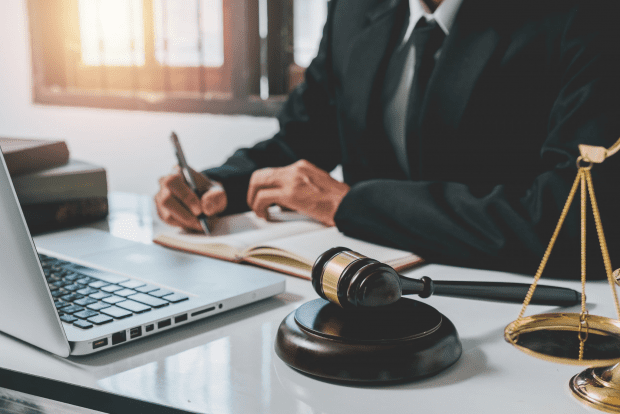How To Prepare Yourself For Examination to Discovery: 8 Important Tips

Examination to discovery is a part of a pretrial procedure which is an important and critical part of the litigation process. At an examination to discovery, the evidence presented at a civil trial is disclosed and both the parties have to provide their sworn testimonies in the form of questions and answers which get presented in front of the court.
The main purpose of this procedure is for the other party to discover the claims that are being made. It also helps the lawyers of both parties assess the case along with the strengths, weaknesses, and credibility of the witnesses.
While it may not be a mandatory step in every case, they are very common during cases that are unable to get settled in the early stages of the litigation.
Tips To Prepare Yourself For Your Examination To Discovery
At Pace Law Firm, our lawyers work closely with you to prepare you for your examination to discover. Based on your specific case, your lawyer will offer you various tips and advice to proceed with your examination for discovery.
Below we have mentioned some helpful tips on being a great witness during your examination to discovery:
1. Always Tell The Truth
Telling a lie under an oath is not only a crime but it can also hurt your case. Being inconsistent in your answers will automatically weaken your case and it will make it difficult for your lawyer to save it.
If you are concerned that the truth could harm your case, then you should discuss it with your lawyer before going to court.
2. Inform Yourself of the Relevant Facts
You should always stay informed about your case and the facts associated with it. It always pays to refresh your memory and have all the facts memorized so any question doesn’t catch you off-guard. While giving the answer you should always be honest and straightforward. Saying “I don’t know” too many times will make you lose your credibility in front of the court.
3. Be a Good Listener
The key to answering carefully is to understand the question properly. You should not always be in a hurry to answer the question. First, listen, then understand and answer exactly what has been asked and nothing more.
4. Think Before You Speak
Thinking before speaking is a trait of a good client. Your answers must be relevant to your case along with being short and straight to the point. Also, without being asked to explain your answer, you should refrain from giving too much information to the council.

5. Your Evidence Can and Will Be Used Against You
The basic motive of examination discoveries is to discover your claim and collect your oral testimony about it. It will also be recorded to be used for the future, and apart from this, your questions and answers will also be transcripted.
The testimony that you provide during your examination to discovery will be used against you during your trial to impeach your evidence. Therefore, it is advised to stick to your original testimony and do not change your answers. In case you are found to be deviating from your original answers, the opposition lawyer could use it to declare you as a non-credible and dishonest witness.
6. Stay Calm and Be Nice
It is natural to feel pressured and nervous during your examination to discover. But you should always remember that it is just a basic procedure and there is nothing to worry about. You will always have the support of your lawyer. So all you should think about is creating a good first impression. Because it will be the time when the judge along with the whole court will be judging you on the basis of your behavior, therefore, it is absolutely important to behave in a nice way.
7. Avoid Guessing The Answers
You should avoid guessing the answers at all costs as it could damage your case or even could be used against you to define you as a dishonest witness. If you are unsure about the answer then you should say so in front of the court. And to avoid saying too much “I don’t know”you should be prepared for the answers. our lawyers at Pace Law make sure you are thoroughly prepared for your examination to discovery so that you do not risk hurting your case in any way.
8. Do not exaggerate
Anything that you say will be taken to its literal meaning therefore you should avoid exaggerating and also not use terms like never and always.
